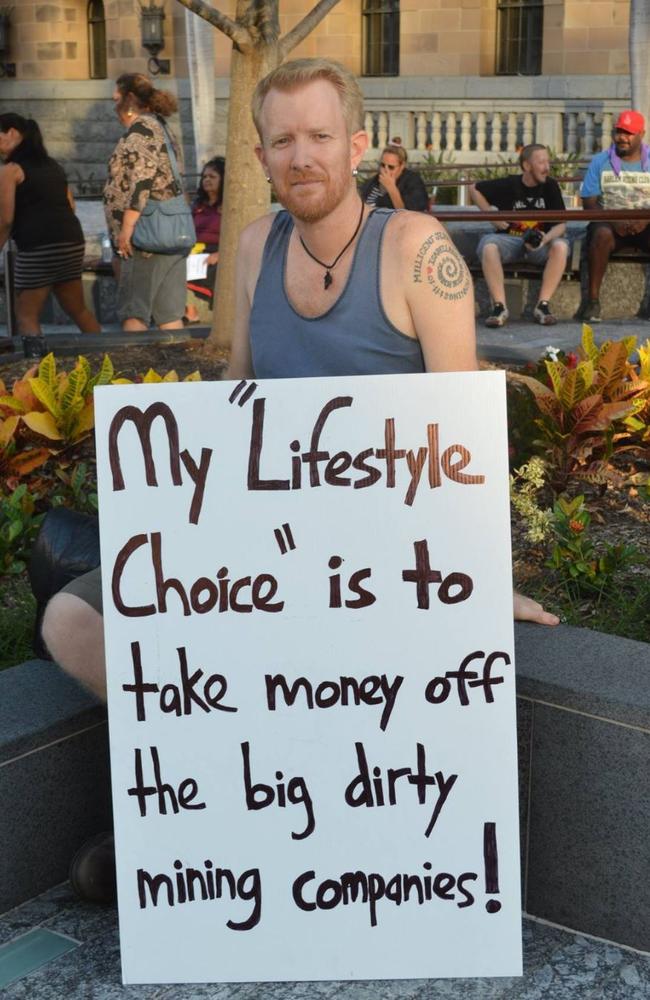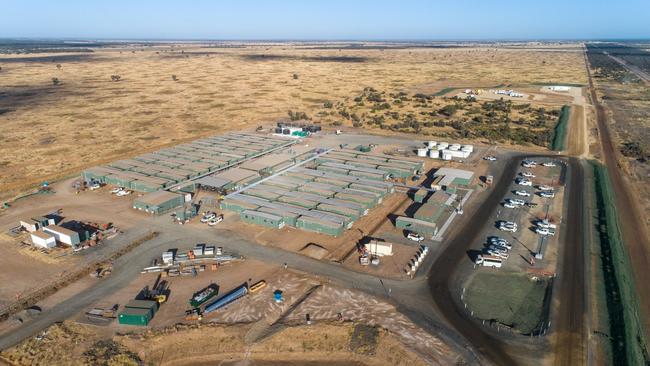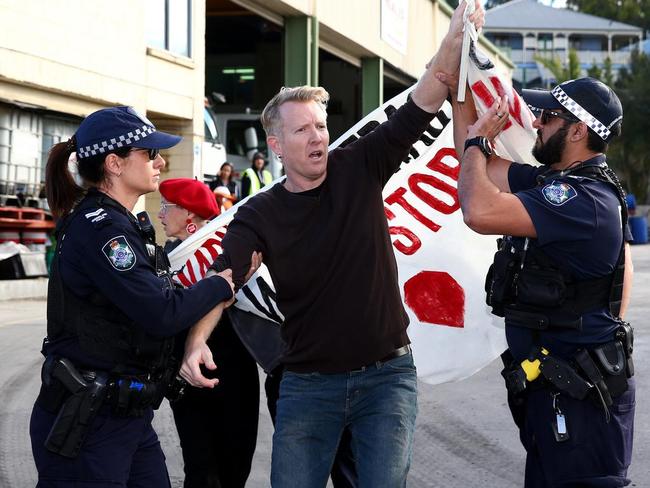Adani’s secret search orders exposed in court documents
Court documents has revealed mining giant Adani attempted to secure “extraordinary” secret orders to enter and search an activist’s home and seize his computers and electronic devices.

Police & Courts
Don't miss out on the headlines from Police & Courts. Followed categories will be added to My News.
Mining giant Adani attempted to secure “extraordinary” secret search orders on one of its most high-profile opponents in the weeks before it lodged its landmark civil damages claim this week, new court documents reveal.
The Supreme Court has today published unreported decisions from two private hearings held in June and July of this year in which mining giant Adani applied for the court to grant an application for them to enter and search the home of activist Benjamin Pennings and seize his computers and electronic devices.
According to Justice Jean Dalton’s judgment, Adani was seeking to seize information which they claim was divulged to Mr Pennings in breach of confidence “and as a result of tortious action such as intimidation and conspiracy”.

Mr Pennings is an outspoken activist and former Greens lord mayoral candidate for Brisbane who acts as a spokesman for groups including Galilee Blockade.
The information being sought is understood to relate to an “infiltration campaign” by the Galilee Blockade Group in which people including employees and contractors of the mine and its rail line were encouraged to leak confidential information back to the mine’s opponents.
“So then looking at the balance of convenience, I think the applicants probably show a high likelihood that Pennings has information which would be disclosable in a proceeding and a high likelihood that he might destroy some of that material in an effort to further frustrate the applicants, but that risk has to be weighed in the balance with, as I say, a less than compelling case: the intrusion, disruption and possible distress to the defendant and his family, and the failure to prove serious actual or potential loss to the applicants if the order is not made, so for those reasons I dismiss the application,” Justice Dalton wrote.
“The purpose of a search order is to preserve evidence because it is feared that a defendant or a respondent, if warned of impending litigation, would likely conceal or destroy evidence so that it is unavailable to assist a plaintiff or applicant in establishing their case…”
“The part of their (Adani’s) case which seems weak on the application is the loss and damage part of the case, so, in effect, the applicants are asking for an extraordinary order to enter and search a home to take all computers and devices, when on analysis of the material before me such a search is likely to add some considerable detail to the part of the case – the pleaded case which is already quite strong and add little to that part of the case which at the moment looks quite weak.

“In my view, that is not a sufficiently strong case for me to make such an extraordinary order as the applicants seek.”
Adani then appealed Justice Dalton’s decision with a hearing in July but were again refused by the Court of Appeal which handed down its decision on August 17 and published online today.
Under the order, a “search party” comprised of two solicitors for Adani, an independent solicitor and a computer expert would have been allowed to enter Mr Pennings’ home and search electronic devices, or if he refused to allow the search, the items would be seized.
“When search orders are granted, the relevant premises are usually business premises,” the appeal judges wrote.
“Surely, to permit a search of a defendant’s house, with the humiliation and family distress which that might involve, lies at the outer boundary of the discretion.
“This is because, for reasons that anyone can understand, the “shock, anger, confusion” and the “sense of violation and powerlessness” will be much greater in such a case and may be suffered not only by someone who is proved in due course to be a wrongdoer, but by entirely innocent parties as well.”

The company yesterday launched landmark civil damages action against Mr Pennings, claiming he has orchestrated a sustained campaign of harassment and intimidation against the company over a number of years.
In a statement this afternoon, Mr Pennings said: “My wife and I have three school-aged children living at home, one with a disability”.
“Adani has failed in two recent Supreme Court applications to raid our family home for corporate secrets they believe I possess.
“Adani’s attack dog legal strategy is well known. They want to silence dissent about their destructive thermal coal project that a majority of Australians oppose.
“I will not let a massive multi-national company threaten or bankrupt my family.”

An Adani spokesperson said it had sought the search order from the Supreme Court to “secure evidence” for its civil claim.
“The civil legal action that this search order related to seeks to limit the campaign of harassment and intimidation we claim has been orchestrated by Mr Pennings against our business that aims to prevent us from legally and legitimately pursuing our commercial interests,” the spokesman said.
“We allege Mr Pennings has been instrumental in organising blockades and the occupation of offices and industrial premises of many of our existing and potential suppliers, as well as some organisations that have absolutely no association with Adani.
“He has caused distress to workers whose offices he has entered and he has used intimidation in an attempt to force meetings with executives.
“Enough is enough.”
